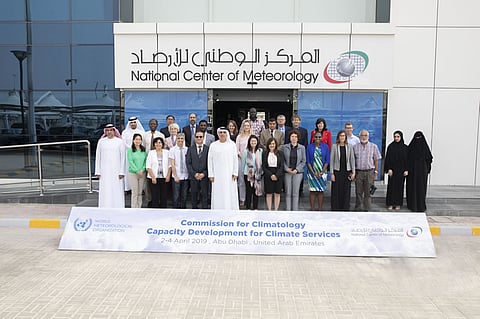

Dr. Ayman Bin Salem Ghulam, head of the National Center of Meteorology, said that the center is using artificial intelligence in monitoring elements of weather that affect lives and properties in all the Kingdom's land, air, and sea environments.
"The devastating floods that struck Jeddah in 2009 have had doubled the public's interest in weather conditions, bringing out a monumental transformation in the functioning of the center," he also said.
Dr. Ghulam said the center now covers about 94 percent of the inhabited geographical area in the Kingdom. He also spoke about the method of cloud-seeding and its necessities.
Dr. Ghulam underscored the need to establish a geographic coverage initiative that works to support the technology in monitoring weather elements affecting flora and fauna, especially rare ones, by publishing a monitoring system with automatic stations for measurements of elements in the air and soil and linking the system with supportive applications to protect crops by warning about frost and heatwaves.
He also said the center has launched the automatic early warning system and expanded the capabilities of surface monitoring. "Now, we have a system of radars and techniques for monitoring weather phenomena that are the latest and most powerful in the region," he also said.
According to Dr. Ghulam, the legislative system of meteorology will make a quantum leap in the practical organization of meteorology within the Kingdom. It will be closer to an organization of participatory relations between the center and the beneficiaries. He indicated that the cloud seeding program aims to increase the rainfall in the southwestern region of the Kingdom; by a rate ranging between 10 percent and 20 percent. In February 2020, the Council of Ministers also approved a program for artificially induced rainfall in the Kingdom.
Dr. Ghulam also said the initiative to establish the Climate Change Center aims to manage environmental and climate data and information; prepare long-term studies and forecasts on climate change and its effects in various sectors in the Kingdom; and support the preparation and implementation of the national strategy for adapting to climate change.
